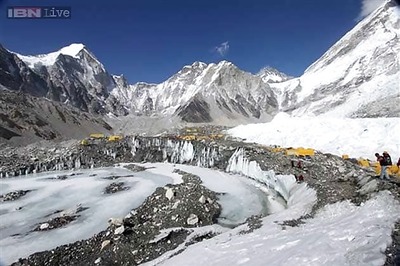
views
Despite China’s attempts to derail the project, India and Taiwan are all set to sign a jobs agreement as early as December to ink $790 billion economy of the island nation.
Ever since the announcement of the pact, there has been a huge backlash online from dubious handles spewing anti-India comments. But, according to experts, who spoke to News18, despite China’s attempts, India and Taiwan are raising the stakes against Beijing with increased economic cooperation.
Ministry of External Affairs spokesperson Arindam Bagchi confirmed earlier this month that the pact with Taiwan was in the final stages of negotiation.
China’s Machinations Stand Exposed
A Bloomberg report had earlier claimed that Taiwan may hire up to 100,000 Indians under the labour pact. This had triggered the online backlash in Taiwan, initially, sponsored by a so-called survey on China Times, which is owned by pro-China Taiwanese tycoon Tsai Eng-Meng.
Chinese accounts have deeply penetrated Taiwanese social media landscape. Taiwanese Labour Minister Hsu Ming-Chun had to clarify that talks were still on and the number cited by the Bloomberg report was inaccurate. Hsu Ming-Chun had to assure that the inflow would be regulated gradually and systematically.
Despite the downplay, Taiwan has taken pains to highlight that the inclusion of migrant workers from India is aimed at addressing a serious worker shortage that Taiwan is facing. It has urged its citizens to not discriminate on the basis of race.
Confirmations from the Taiwanese and Indian governments indicate that while the people-to-people link between the two countries needs work, the governments are in sync when it comes to reaching a pact to accommodate more Indians in Taiwan’s workforce.
Why Taiwan Needs Workers
Taiwan is facing a demographic crisis owing to a declining population. By 2025, Taiwan is anticipated to transition into a “super-aged” society, signifying that over 20% of its population will be of elderly individuals.
Taiwan is a largely homogenous society with 3.4% foreigners, most of whom are from Southeast Asia. With a population of 23.6 million, over 822,319 are foreigners— mainly migrant workers from Southeast Asia. According to Taiwanese media, 745,000 of these foreign workers are employed in manufacturing and caregiving. Around 35% are Vietnamese, a similar number from Indonesia, 9.2% or the workers are from Thailand and 20.4% from the Philippines.
Taipei is looking beyond Southeast Asia and towards India as part of its Indo-Pacific strategy to strengthen ties in the region.
“Taiwan needs stronger and deeper informal relations with a range of countries in order to increase deterrence against China,” said Sreeram Chaulia, Dean at the Jindal School of International Affairs at O.P. Jindal Global University, in conversation with News18.
India: The Answer to Taiwan’s Problem
About 5,000 Indians reside in Taiwan, but they mostly hold white collar jobs in the country’s formidable tech industry. Having had a positive experience with Indian professionals, Taipei is looking to cast its net far and wide beyond the tech sector and welcome Indian blue collar workers to work in manufacturing, agriculture, construction projects, hospitality sector and more.
Taiwan’s reputed semiconductor industry is facing a critical shortage of talent and skilled professionals— a gap that India can fill.
As India seeks to build its indigenous semiconductor manufacturing industry, Taiwan has emerged as a promising investor with Foxconn and TSMC exploring a joint venture in the country. India has over 120,000 semiconductor engineers working in areas of chip design and development.
However, India lags behind in the space of chip manufacturing and even as it produces 150,000 semiconductor engineers every year, they are forced to switch to IT, according to former IIT Delhi director V Ramgopal Rao.
While India is keen on attaining well-paying jobs for its youth, TSMC, Foxconn, MediaTek and others are keen to tap into this pool of talent and fill the shortage of professionals faced in Taiwan. News18 has reached out to Foxconn and TSMC on their plans to rope in Indian professionals, and we are still awaiting their comments.
Similarly, Taiwan is also facing a declining workforce in various blue collar sectors. It has in the past struggled with racism towards migrant workers from Southeast Asia. However, the country has worked towards improving conditions for migrants in the past few years.
It now provides equality of pay and other facilities to migrant workers and wages are high promising a monthly income of $820. It also has a ‘Gold Card’ programme for attracting and retaining skilled and trained professionals, wherein a 4-in-1 visa with work permit, resident visa and certificate and re-entry permit, is extended to the migrant worker.
India, with its 1.4 billion people, has the capability to power the world’s economy with its professionals. It is the perfect candidate to cater to global demands for workers across sectors.
“India is preparing skilled professionals for the world, not just for itself,” Prime Minister Narendra Modi said in a speech in October. The government’s Skill India initiative dedicates several schemes towards enhancing the skillsets of the Indian youth.
India-Taiwan Relations Have Never Been Better
In the case of Taiwan, the impact of the purported jobs pact will be far reaching. Of late, engagement between these two neighbours of China has intensified. New Delhi and Taipei are seeking to raise the stakes in their relationship amid heightened aggression from China. While India is locked in a border stand-off with China since 2020, Taiwan has been battling an elevated threat of invasion from the Chinese mainland.
“If more foreign nationals from India and other friendly nations go in large numbers to work in Taiwan, the jobs pact will serve as a demographic deterrent to China. Invading the island when so many foreigners are at risk is not an easy decision for China to make, as it could increase the stakes for many countries to defend Taiwan at all costs,” Professor Chaulia told News18.
On China’s possible reaction to the labour pact, Sana Hashmi, a Taiwan-based researcher at the Taiwan India Exchange Foundation, told News18, “India has already signed an investment treaty with Taiwan and a number of other agreements. So this is within the agreed upon mandate of the relationship and it should not pay heed to China’s protests. This is more about the timing and about how India is perceiving Taiwan.
“This is the start of India strategising its position in the event of a Chinese invasion of Taiwan. Recent events show that India is talking to like-minded countries and thinking about its own role,” she added.
Last week in London, External Affairs Minister Subrahmanyam Jaishankar even commented openly on relations with Taiwan pointing towards an “upswing in the levels of cooperation”.
“We have substantial technology and economic relations with Taiwan. Taiwan has a reputation when it comes to electronics and more recently with semiconductors. So, there has been an upswing in the levels of cooperation,” Jaishankar had said.
Sana Hashmi analysed Jaishankar’s remarks as a categorical acknowledgement of Taiwan’s rising importance in India’s geopolitical calculations. “I have not seen another foreign minister speak so openly about ties with Taiwan,” Hashmi told News18.
In August this year, MM Naravane, RKS Bhadauria and Karambir Singh, former chiefs of the Indian Army, Air Force and Navy held closed-door meetings with the leadership in Taiwan. Raising Chinese objection, this was an unprecedented event as far as optics are concerned, signifying how ties have graduated from mere economic engagement to deeper strategic deliberations between New Delhi and Taipei.
China sees Taiwan as a breakaway province that must be reintegrated, even if by force. It leverages its diplomatic and economic heft to keep Taiwan isolated on the world stage. Taiwan remains excluded from the United Nations and is recognised as a nation by only 14 countries, a number that fell from 18 in recent years amid an aggressive push by Beijing to poach Taipei’s last remaining official relationships.
Most countries adhere to the ‘One China’ principle, dealing officially with Beijing as the sole and legitimate government of China including Taiwan as an inalienable part of the country. Although India is one of these nations, it has not reiterated its commitment to China’s directive for more than a decade and has progressively stepped up engagement with Taiwan.
Amid the Indian standoff with China, PM Modi’s government has strategically and symbolically steered closer to Taipei, which is led by President Tsai Ing-wen whose Democratic Progressive Party (DPP) has boldly resisted Chinese threats.
Beijing is visibly perturbed by the gradual shift in India’s Taiwan policy. However, with increasing economic cooperation and investments, India-Taiwan relations are at a pivotal juncture and it is unlikely that China’s mischievous tactics to draw a wedge between the two will succeed.

















Comments
0 comment